╳

Get The Latest On Our Greatest
Subscribe to Our Company/Product Updates

Tuesday, August 22, 2017
While living in Europe, I had the great honor of contributing a little sweat equity to the upkeep of one of my friends’ summer homes. Located in a beautiful area known for its rough winters, this home was mainly used between May and September, and was left alone for the rest of the year. The home had plenty of deck space, but its owner didn’t have a lot of time, so the house needed a deck that could last for years without much maintenance work. In my opinion, if a deck can go without regular pressure washing, sanding, and sealing, while also keeping its color and staying free of mold and splinters, then it’ll make ideal decking for a summer house. (No matter your location!) The trick is to avoid traditional wood and go with something engineered to be easy. Fully capped composite decking works exceptionally well for a summer house, as it’s durable and extremely low maintenance.
What to Look for in Decking for a Summer House
There are a few main qualities that make some decking materials optimal for a summer house. Apart from being beautiful and sturdy, the most important qualities are ones that reduce the maintenance load and bring peace of mind while the homeowner isn’t around.
Wooden Decking Maintenance
Keeping a summer home’s wooden deck in good shape generally takes work in the spring and again in the fall. For owners who don’t plan to occupy the property during those shoulder seasons, this likely means hiring contractors to do the work – and those costs can quickly add up. Even for owners with lengthier stays, the idea of spending their limited time in this second home on sanding, power washing or sealing may seem super appealing. For these reasons, a traditional wooden deck may not be ideal.
Low Maintenance Composite Decking
I’ve become a fan of composite decking for summer houses, as high-quality, fully capped composite decking has a non-porous surface that is easy to clean, doesn’t provide a home to mold and mildew, and never requires an ounce of sealer or stain over its long lifespan. What makes this possible is the rubbery, enhanced resin capping material that encases the composite board. When you choose a good quality composite, the capping ensures that there is no chance for mold, sun damage, or water absorption to take place. That means that the only real maintenance on composite decking is a light cleaning, using just water and dish soap. All of this makes composite decking the perfect decking material for beach houses, mountain cabins, or even hot and humid areas.
The Aesthetic Benefits of Composite Decking
Despite its low maintenance benefits, one of the primary objections to earlier versions of composite decking was that it wasn’t much to look at. Over time, it would lose its coloring and often appeared fake or plasticky. Luckily, that’s changed pretty dramatically over the years.
Near the end of my time in Europe, I worked on a couple summer homes in Finland, and while up there it is considered almost a crime to use something other than wood, the pragmatic homeowners instead opted for composite decking, which to date has only required some gentle sweeping and mopping when the summer season opens up in May.
A line of composite decking that fills out all the above low maintenance requirements is Infinity® I-Series composite decking, produced by Fortress Building Products. It’s unique in the composite decking world, being made of bamboo and plastic, instead of sawdust and plastic. This makes it extra moisture resistant and strong. This type of decking is also fully capped, and Fortress® uses a capping that’s slightly ‘grabby’, making it easy on the feet, harder to slip on, and much more natural looking than most composites. All these plusses mean that this decking is at the top of my short list when it comes to composite decking boards. And since I usually do larger projects, where my needs extend beyond decking, I also recommend Fortress’ full line of building materials for whatever needs doing on a project. They’ve got ultra-tough fencing, railing, and ornamental hardware for use on almost any property, including vacation homes.
Search